Have you ever wondered why some areas flood more than others, even after a small bit of rain? The answer might lie right beneath your feet – impervious surfaces. Many people have impervious surfaces on their property and they don’t even know it, but what if there’s a way to mitigate this issue?
We’re here to tell you there is a way, but before we talk about possible solutions, let’s take a moment to discuss what impervious surfaces are and how they can affect your property.
What is an Impervious Surface?

Simply put, an impervious surface is any material that prevents water from seeping into the ground. Common examples include asphalt, concrete, and even some types of compacted soil. These surfaces are common in urban development, but come with a hefty price for the environment and property owners.
The main issue with impervious surfaces is their role in altering natural water cycles. When the water hits an impervious surface, it can’t get through to reabsorb into the earth. This leads to increased runoff, which can cause flooding, erosion, and pollution in nearby waterways. Over time, it can have devastating effects on your property and the local ecosystem.
The Downsides of Impervious Surfaces

Impervious surfaces are common because they’re less expensive and require less maintenance than other hard surfaces. While impervious surfaces might seem like a necessary evil, their drawbacks cannot be ignored:
Increased Runoff
Impervious surfaces prevent water from soaking into the ground, which can lead to excessive runoff during heavy rains. The excess water can overwhelm drainage systems and cause urban flooding and disrupted ecosystems.
Pollution
Runoff collects pollutants from impervious surfaces, such as oil and heavy metals, and carries them into rivers, lakes, and oceans. This pollution can harm aquatic life and contaminate water sources, which makes them unsafe for consumption and recreation.
Heat Island Effect
Impervious materials like asphalt and concrete absorb and retain more heat than natural landscapes. This leads to higher temperatures, increased energy consumption for cooling, and more air pollution.
Water Quality
The quality of water declines as runoff causes more erosion, which leads to sedimentation that negatively impacts water habitats. Increased pollutants in the water can also negatively impact water quality.
Drainage Issues
The excess runoff from impervious surfaces can put a strain on local water systems. This can cause sewage treatment plants to overflow and pour untreated sewage into natural water bodies.
What is a Permeable Surface?
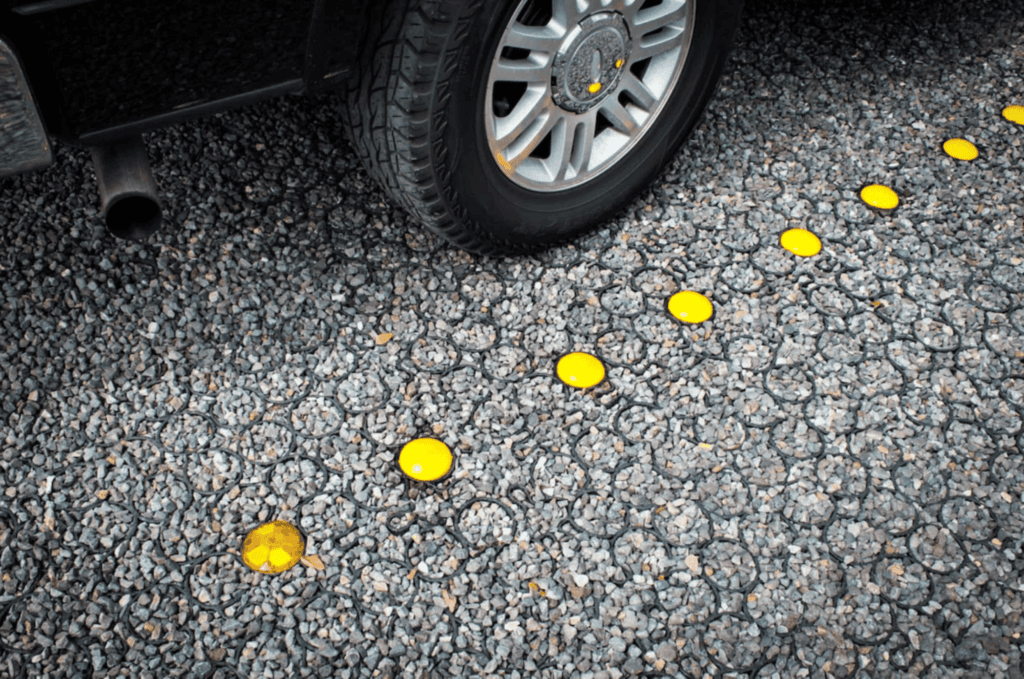
On the flip side, pervious surfaces allow water to pass through which reduces runoff and recharges groundwater supplies. They are an integral part of sustainable landscaping that helps to mitigate the issues caused by their impervious counterparts.
Permeable pavers are a fantastic example of pervious surfaces. They’re designed to let water soak through to help reduce runoff and pollution. TRUEGRID® is a leading provider of permeable pavers, with a range of products that are both functional and aesthetically pleasing.
6 Innovative Ways to Reduce Impervious Surfaces

If you want to learn how to reduce impervious surfaces and the damages they can create, you need to think outside the box.
Here are 6 effective strategies that you can use to reduce your impervious surfaces:
1. Permeable Pavers
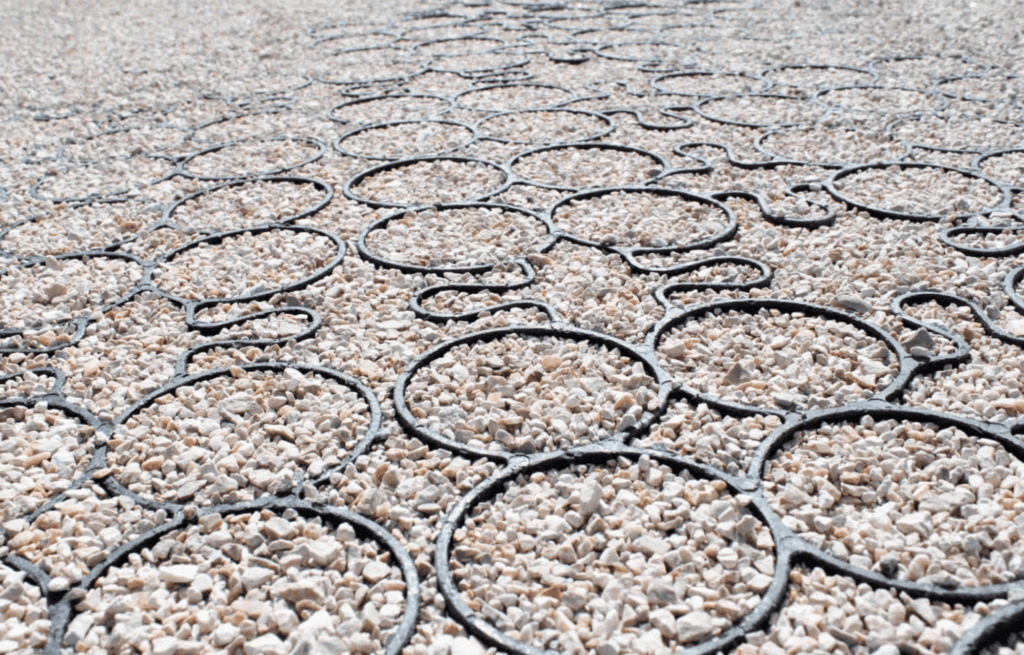
Permeable pavers merge the functional need of traditional paving with eco-friendly features by offering an innovative solution that reduces runoff and promotes groundwater recharge.
Their design allows rainwater to filter through which reduces the impact on municipal drainage systems and lowers flood risks.
TRUEGRID® leads the innovation in this space by providing durable and sustainable pavers for residential and commercial settings. Our crafted products are crafted from recycled materials and boast heightened durability, low maintenance requirements, and environmental benefits
2. Green Roofs
Creating a green roof is essentially transforming your roof into a green oasis by covering it in plants that will look beautiful and absorb rainwater. This innovative approach helps insulate your home, reduce water runoff, and combat the urban heat island effect.
3. Rain Gardens
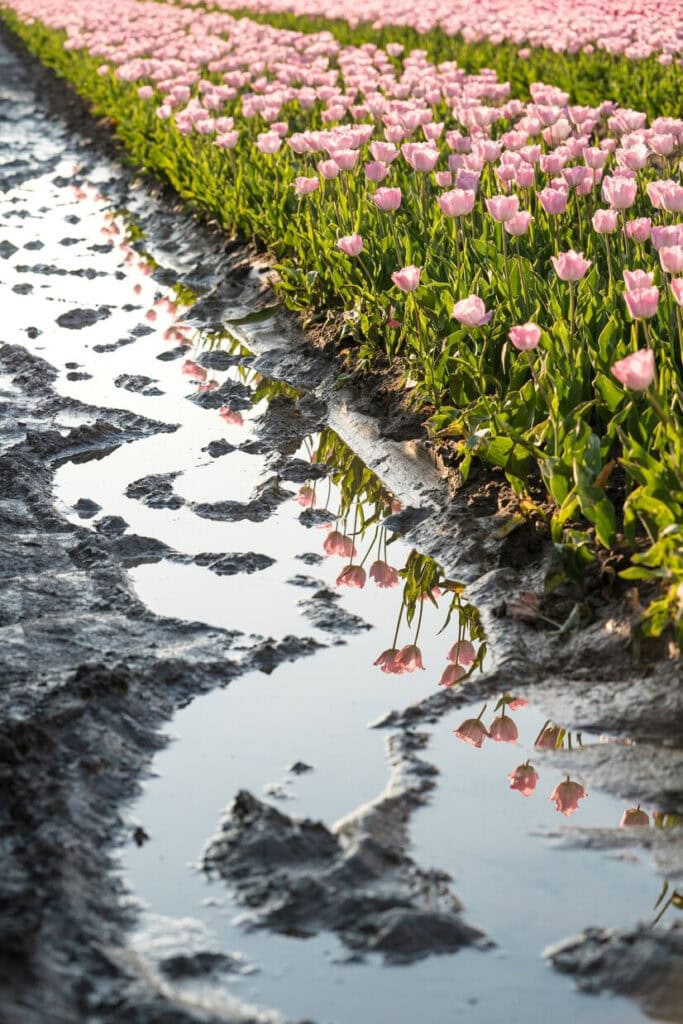
Rain gardens are designed to collect runoff from roofs, driveways, and other surfaces. By planting them with native shrubs, perennials, and flowers, you can create a natural filter for runoff that enhances your property’s aesthetics and reduces the impact that impervious surfaces have on your local environment.
4. Redirect Downspouts
Instead of allowing downspouts to discharge water directly onto hard surfaces, redirect them toward your garden or rain barrels. This simple change can simultaneously reduce runoff and water your plants.
5. Plant Some Trees
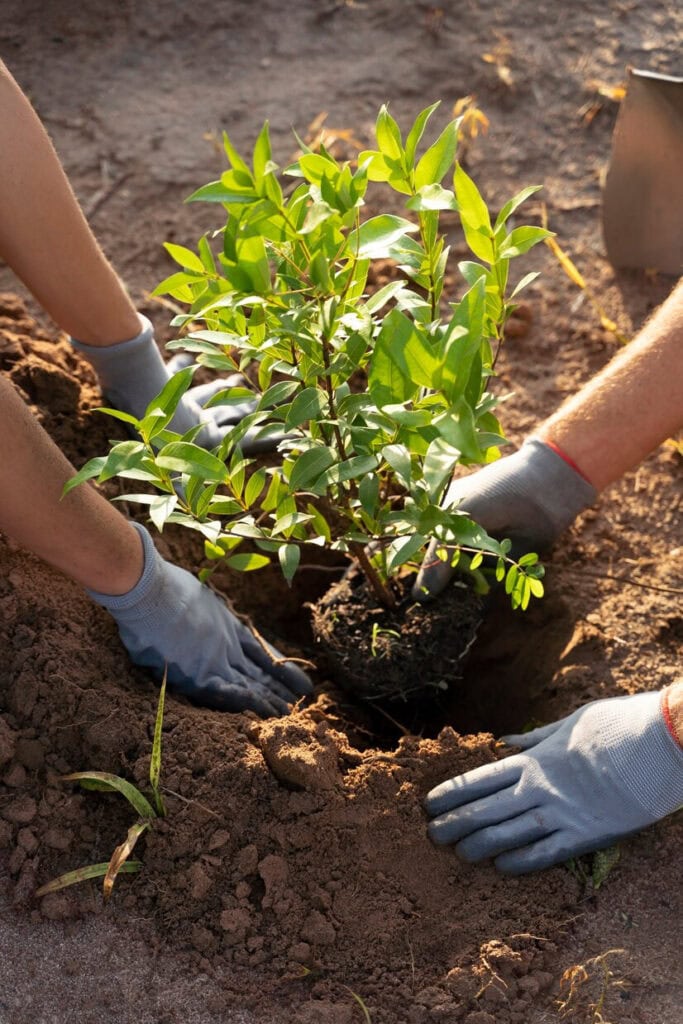
Trees are nature’s way of managing water. Their roots absorb and store large amounts of rainwater, which reduces runoff and erosion. Plus, they offer the added benefits of shade and beauty. To reduce impervious surfaces on your property, plant some trees!
6. Use Mulch

Mulching your garden beds retains moisture for your plants and allows water to infiltrate the soil more effectively. This simple strategy can significantly reduce the amount of runoff from your property and reduce the impact that impervious surfaces are having on your local environment.
Reduce Reduce Impervious Surfaces and Potential Water Damage with Permeable Pavers from TRUEGRID®
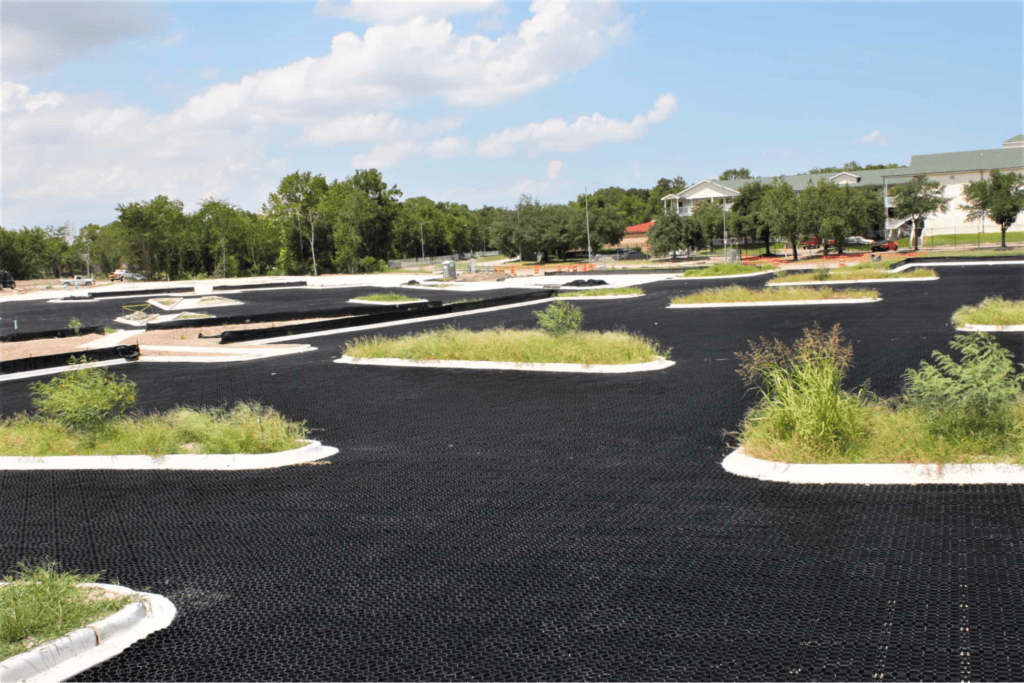
As we’ve explored, reducing impervious surfaces is crucial for managing water sustainably and protecting our properties and local water sources from damage and contamination. TRUEGRID® provides a practical and aesthetically pleasing way to achieve this with our wide selection of permeable pavers.
Ready to make a change? Get an estimate for your property today!



